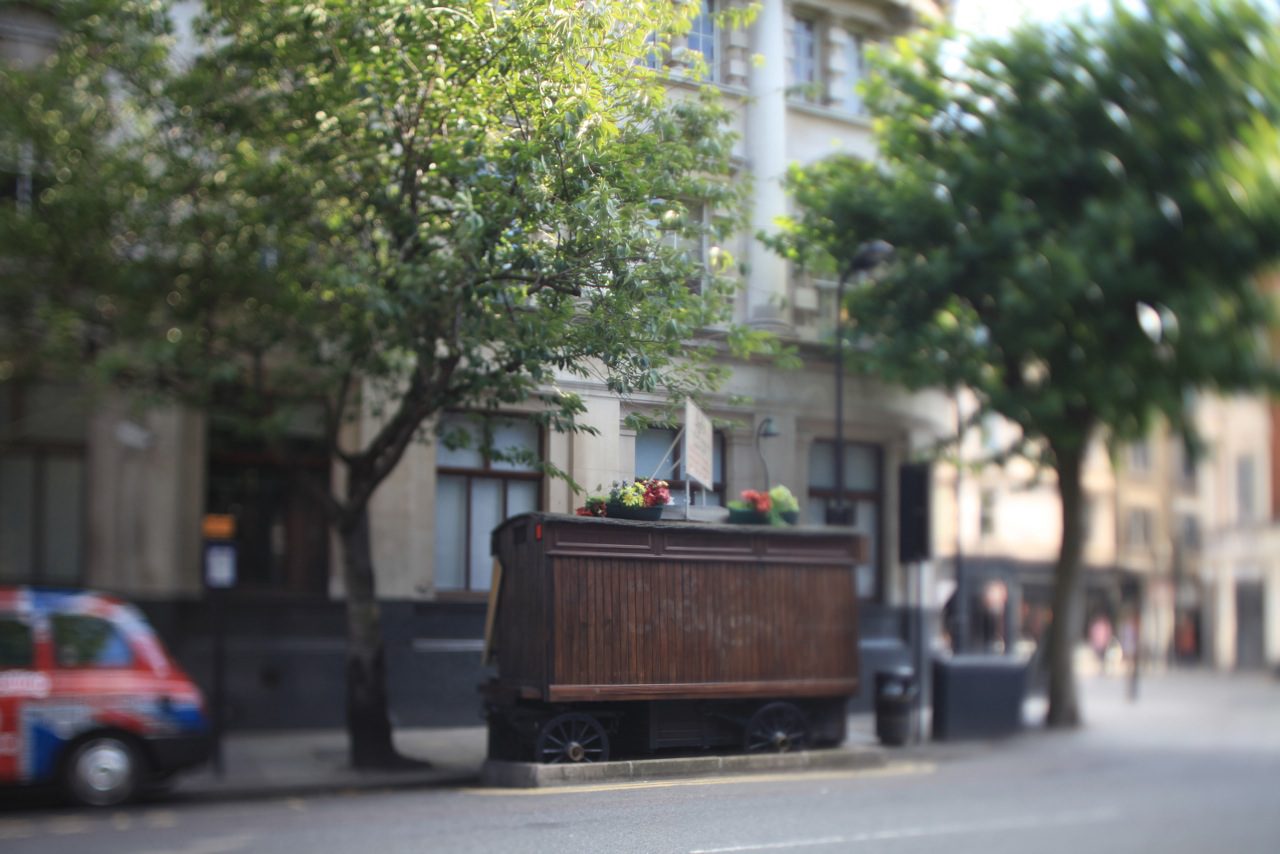
Shiraz Bayjoo with Tara Brown at the Screening Party
Conversation with Shiraz Bayjoo by Inivator Tara Brown
Last week, I managed to meet with Shiraz Bayjoo to have a conversation about Social Archive One: An Economic Forecast (Shoreditch) and about his practice. The project has been two months in the making, and asks questions about economics, migration, class and society.
Shiraz has also been working with Providence Row for the last ten years, where the first Social Archive was created, collaborating with the homeless community in the area. I started the conversation just asking Shiraz what the social archive was about:
“The main purpose of creating the social archive of Shoreditch is to explore the area – its economic context and the impact of the current economic environment. Social Archive One asks local businesses about the nature of what they do, and their reasons for migrating to the area… all adding up to the social, geographical and physical makeup of the area. It’s not just about people but also about place, the issues of identity and the fracturing of identity, congregating in new places and making new alliances.
It’s an ambitious project in the timeframe allowed with a huge amount of work, researching the area and creating the archive. Because of its scope help is needed from the ‘citizen archiver’, bringing in the voices of people who may or may not know the area. The outcome hopefully is that people realise there’s a strong local community beneath the surface.”
When I asked what he thought about Shoreditch, Shiraz mentioned that side streets were becoming populated because of rising rental prices on the high street, and older businesses such as Syd’s coffee stall (on Calvert Avenue) were experiencing vandalism and are being slowly squeezed out. Shiraz has also found lots of small lifestyle businesses, all different, some with a lot of image involved but a lot of honesty too.

Syd’s Coffee Stall, Photo by Shiraz Bayjoo
“Although central London won’t become completely elitist, this social archive would be essential for plotting a pattern from the people who live and work there and where they’re from. The social archive will be online as well. It’s good to have them online – archives are only useful in this context if they are used or analysed by others. You don’t have to be an expert – it’s a very plural and democratic way of keeping an snap shot of the present. I would like to see others expand and add to them.”
“The Social Archive has become part of my practice, growing into a much bigger scale, but anyone can do it. It is important when non artists do these projects it is a human transaction, a physical act of doing.”
Social Archive One with Shoreditch is not his first collaborative project and when I asked what draws him to this kind of work Shiraz says that his work explores issues of migration, identity, society in a visual way, and it’s important to work directly with people to gather a depth of understanding.